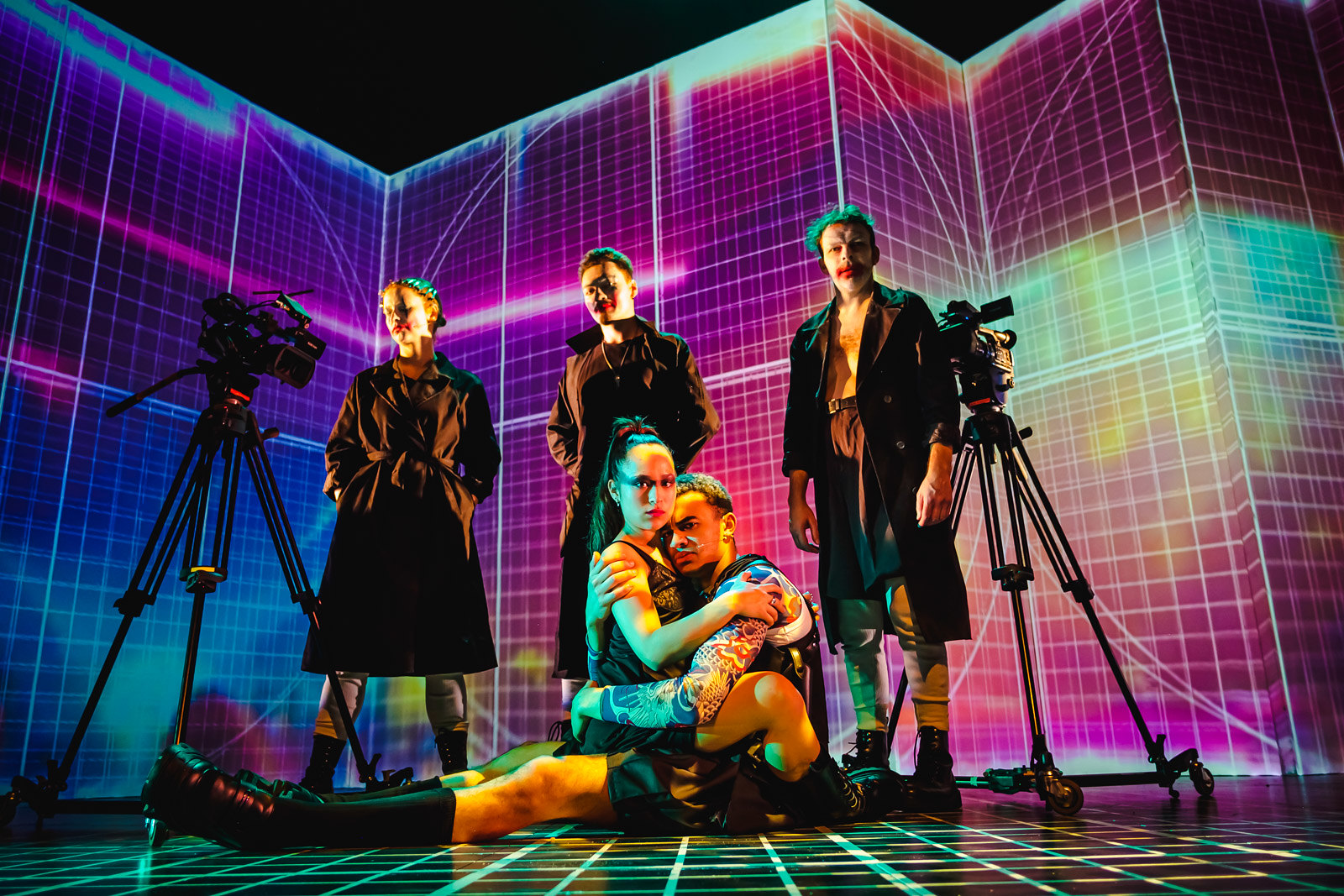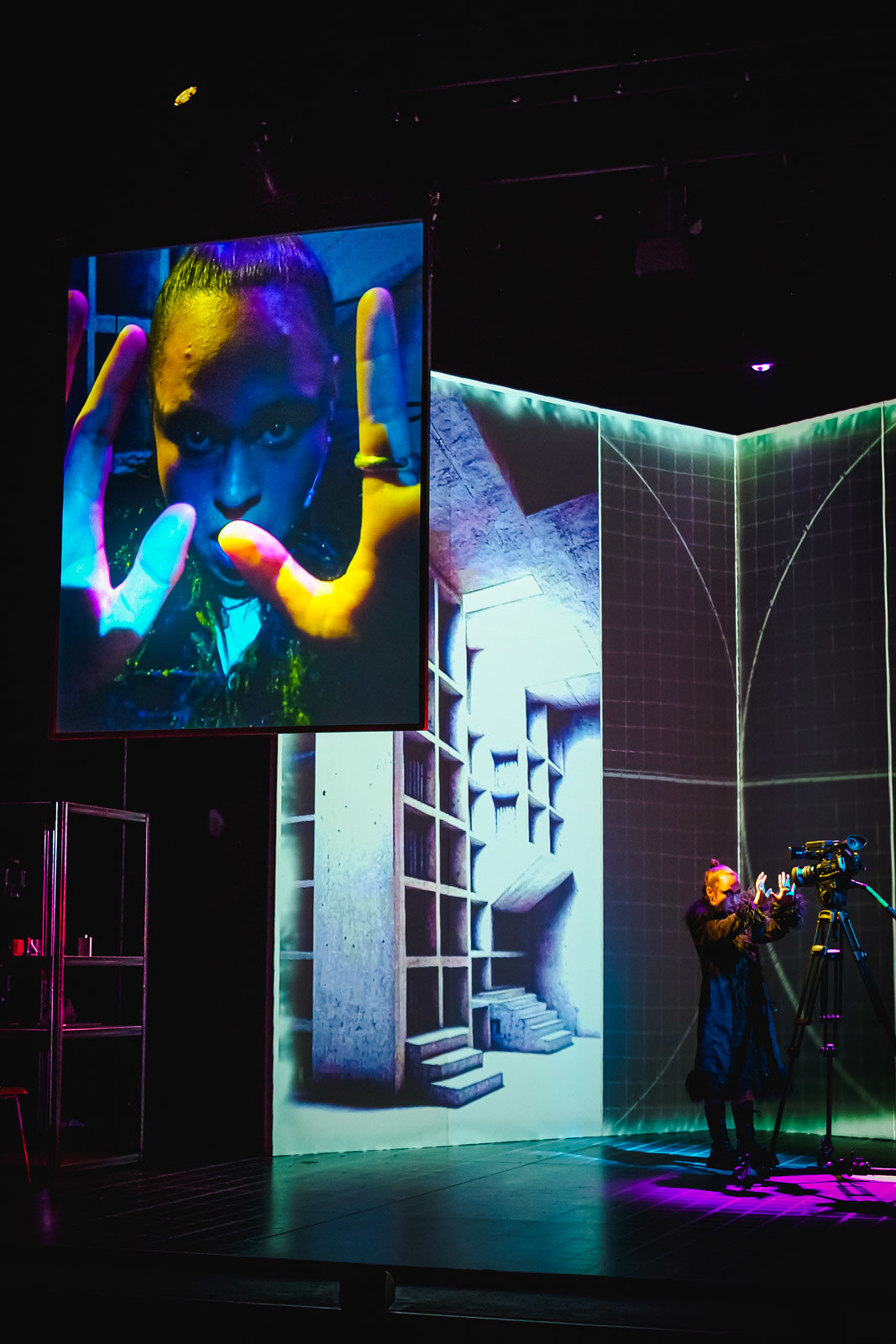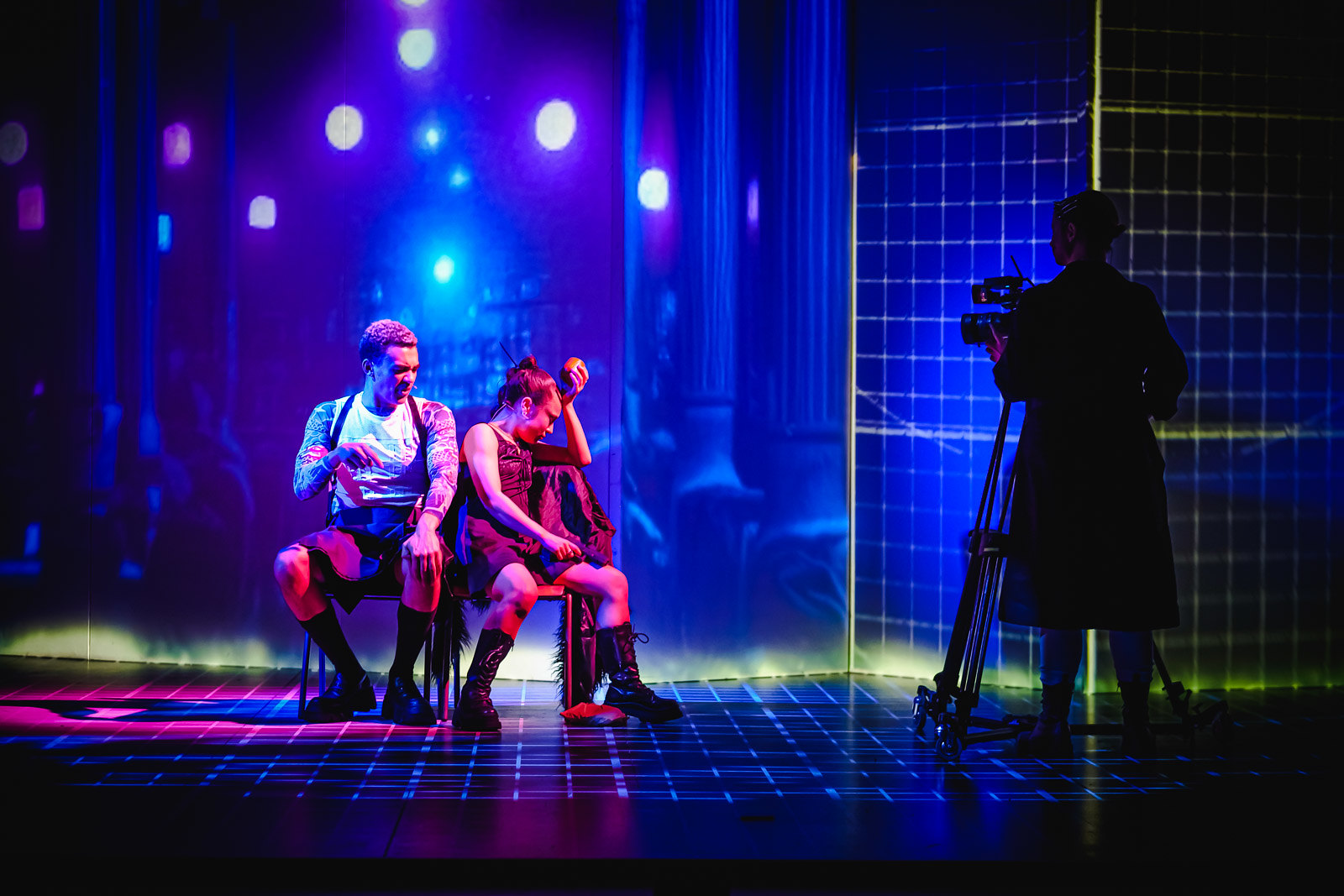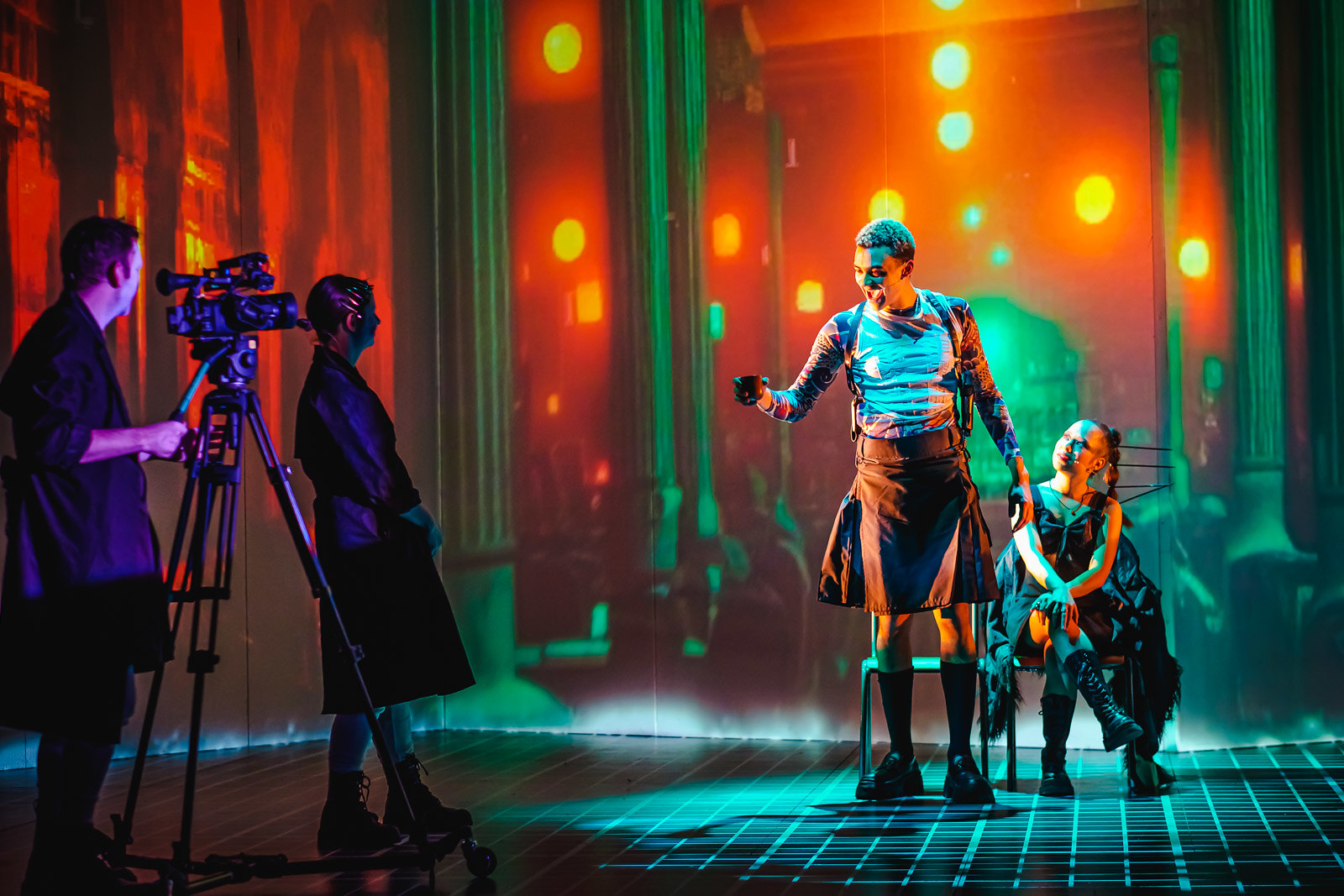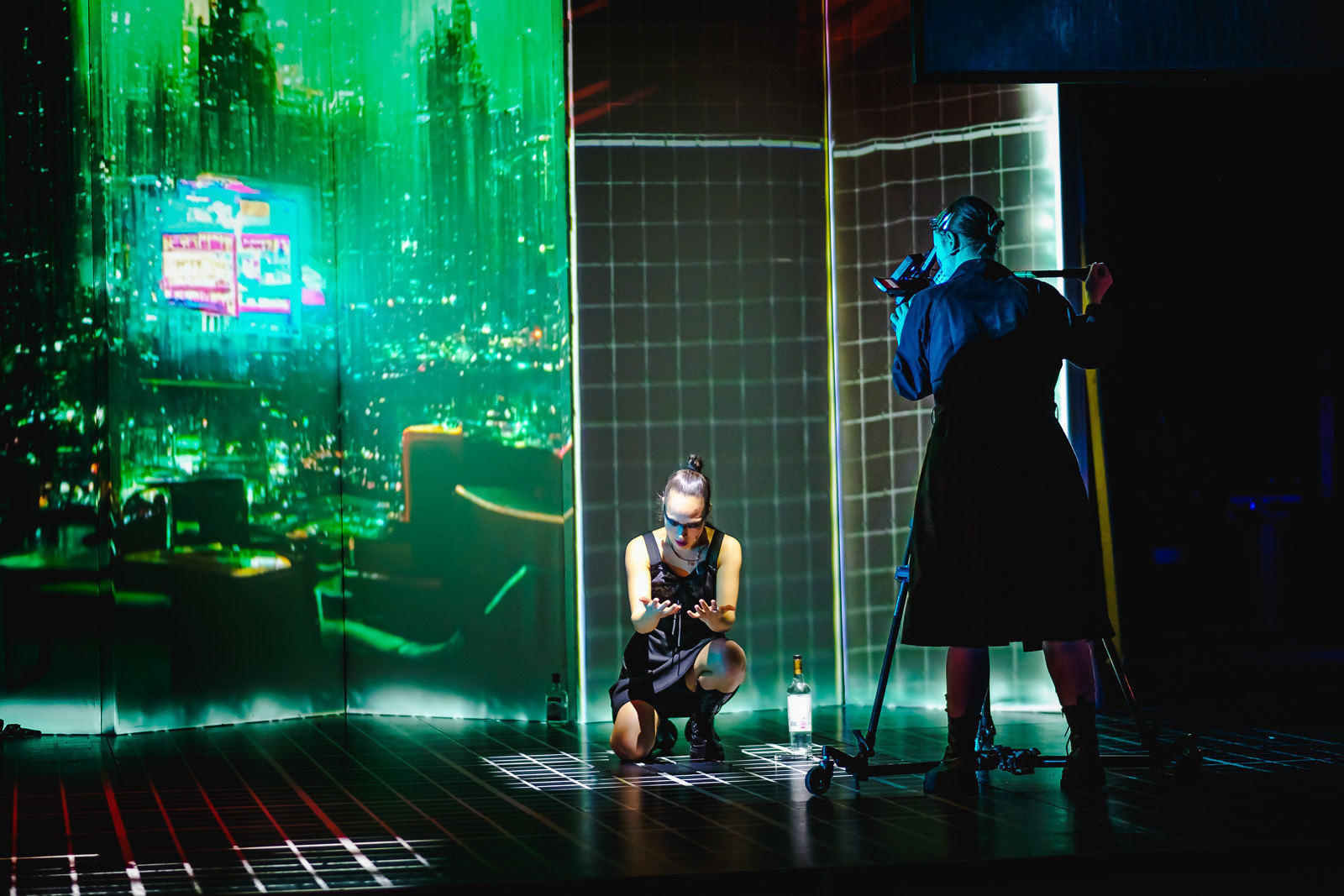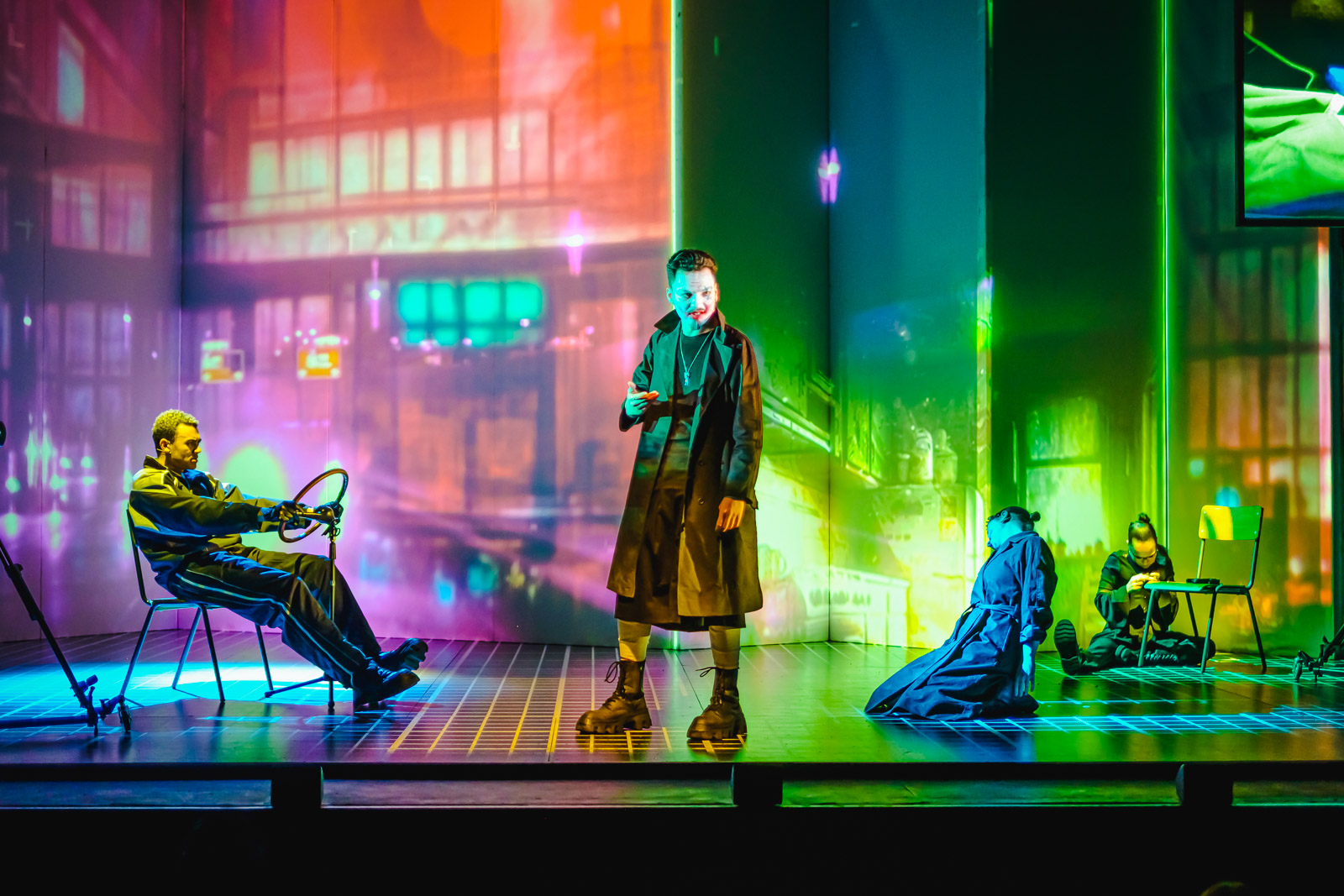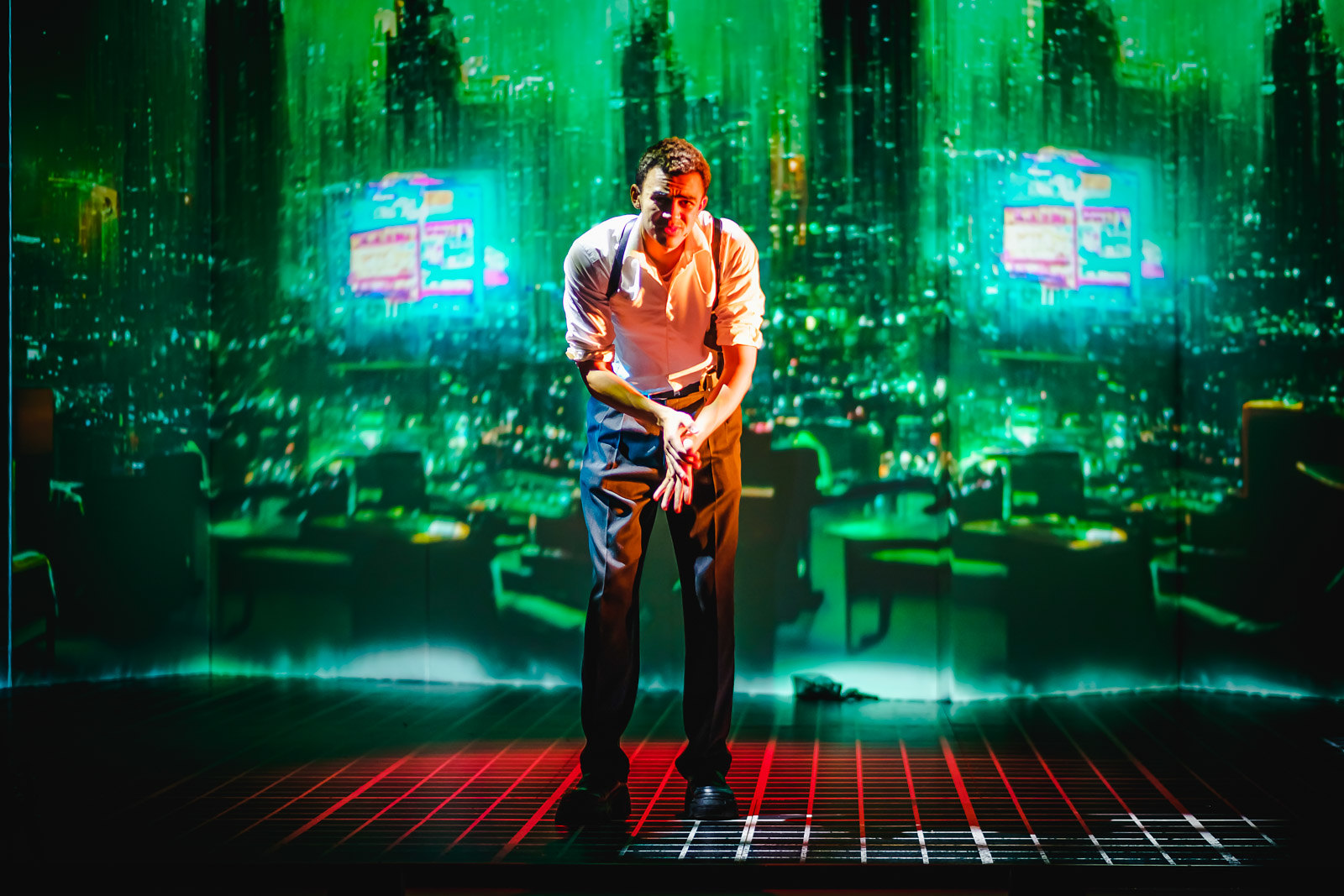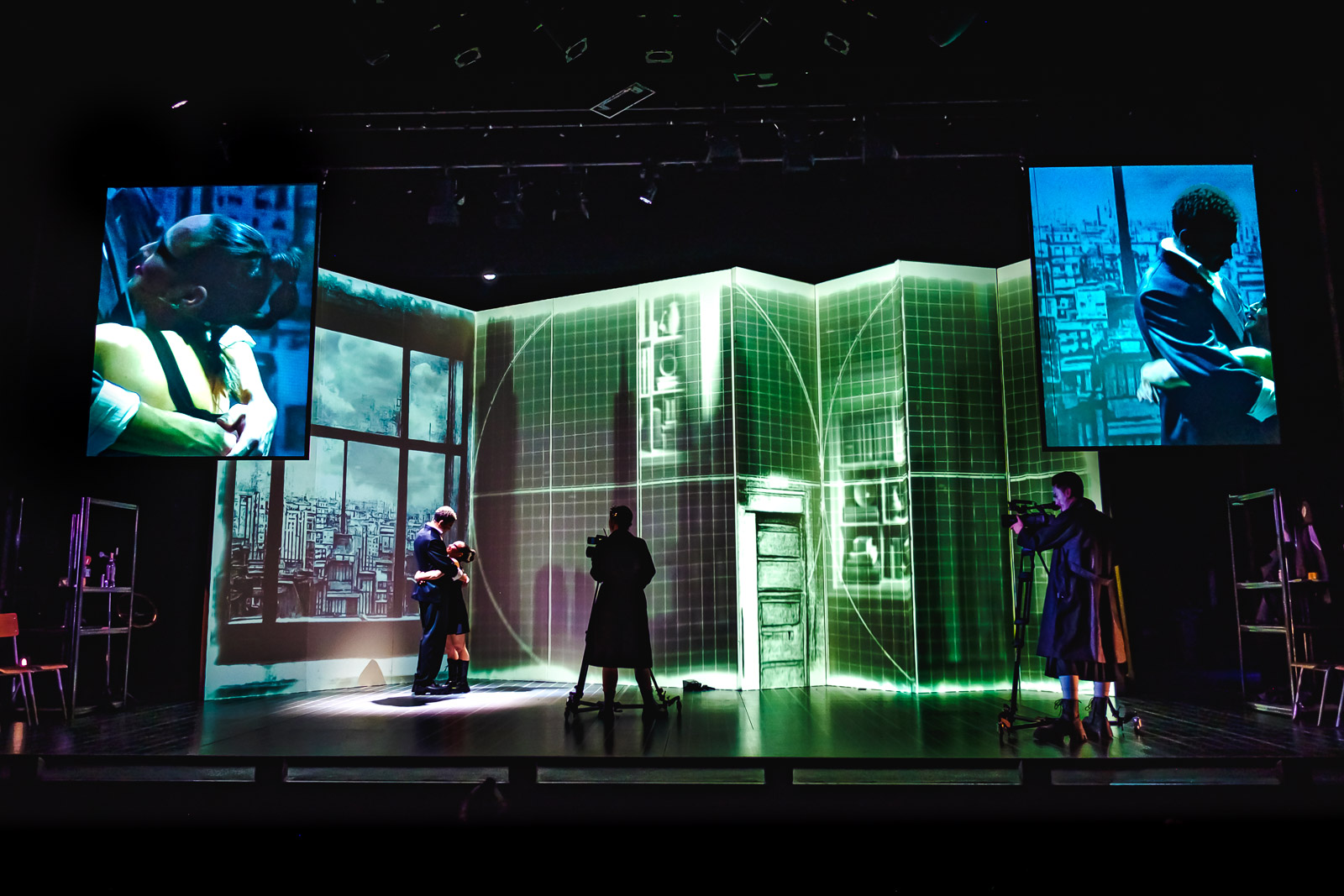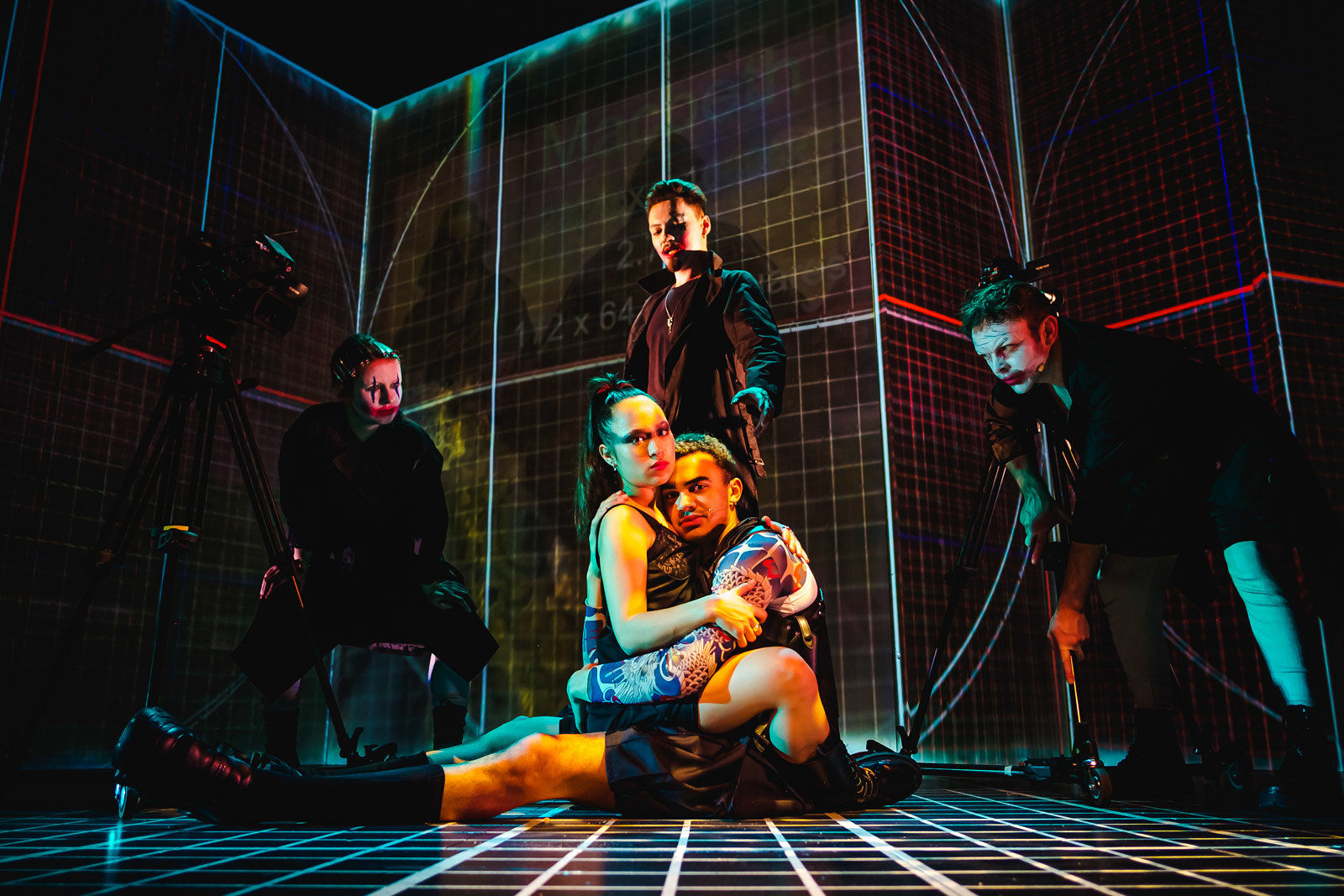Manchester Theatre News & Reviews
REVIEW - Imitating The Dog's Macbeth is innovative and modern, flawlessly blending technology and live performance, creating a fascinating theatre experience!
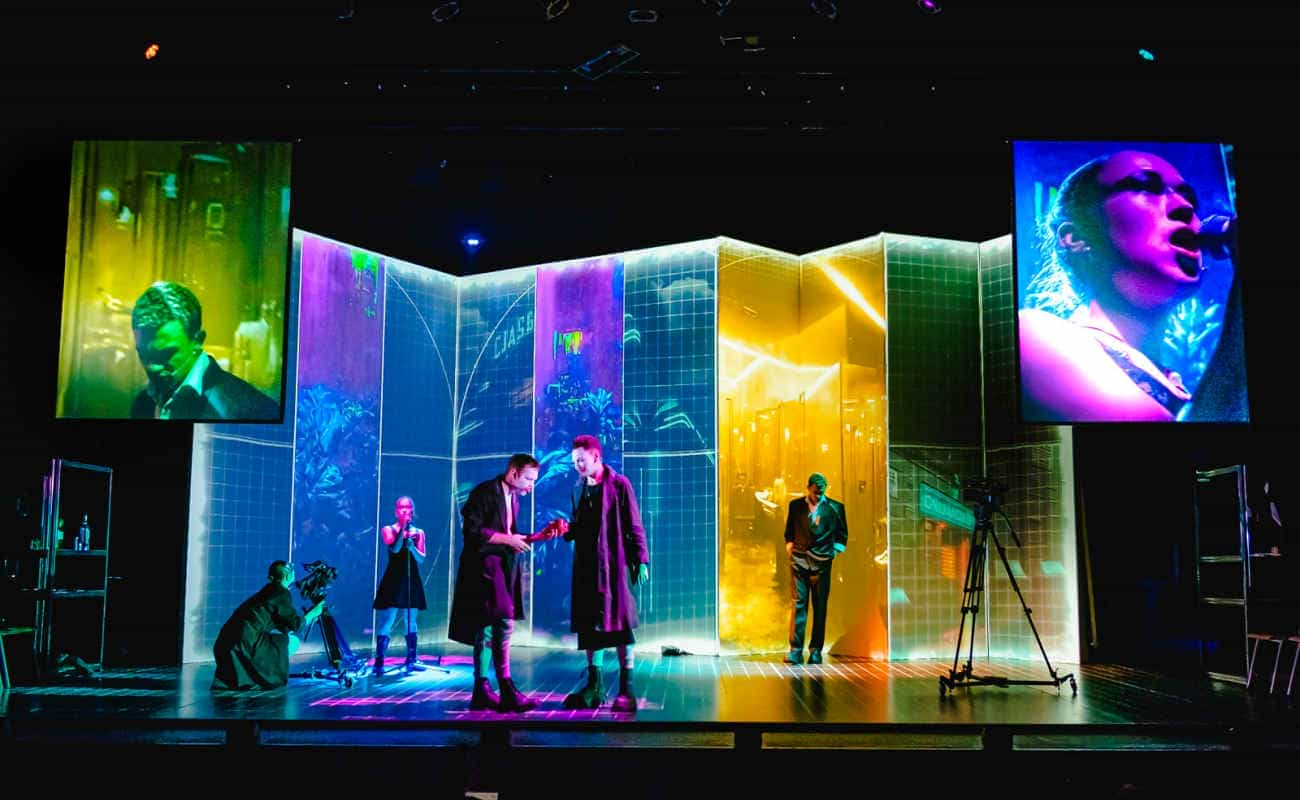 BOOK YOUR TICKETS HERE!
BOOK YOUR TICKETS HERE!
On Wednesday, we went to The Lowry, Salford to watch Macbeth. Find out what our reviewer Karen Ryder thought about Imitating the Dog's latest piece...
You may know Macbeth really well. You may be able to quote it relentlessly, recite its many themes and dissect its intriguing subplots, but you still won’t be anywhere near the Macbeth experience on offer from Imitating The Dog. Celebrated and renowned for their eclectic storytelling approach, their Macbeth is an innovative and modern retelling of Shakespeare’s Scottish play. It flawlessly blends technology and live performance into a live cinematic frenzy to evoke a tale of violence, revenge, murder and power.
Imitating The Dog have been around since 1998 and their ground-breaking work has cemented their reputation for making the impossible possible across the UK, Europe and the world. They approach every project with fresh eyes and originality, ensuring that stories continue to be told in refreshing and exciting ways. Audiences are challenged to embrace different perspectives of known stories and incorporate technology in ways you will never have seen before.
ITD’s retelling of Macbeth still encapsulates the themes of power, violence and ambition and doesn’t shy away from the fall out of challenging the natural order of things, but it does it in a sort of future world that is a mutation of London, Tokyo and LA. This becomes known as Estuary City and is populated by a diverse and evolving set of characters. Our central characters of Macbeth and Lady Macbeth are now a lot younger and come with a backstory. They met in an orphanage, are street wise. Macbeth is an orphan and Lady Macbeth is a survivor of sexual exploitation. This backstory and understanding why they do the things they do allows you to connect to the Macbeths emotionally and, dare I say, empathise? This is a brilliant decision that almost allows the audience to question at what point does a crime become a crime if there is justification? Shakespeare’s three witches are now more con artists, and masters of manipulation. They talk directly to the audience, introduce us to the story and to the Macbeths, and create a dark and twisted world for them to navigate.
There is a real modern day element from these characters, as they film everything that the Macbeths do and say, mirroring our current social media mad world where everything can be documented and used as currency. As the witches, (wearing black kilts that are a cheeky nod to the plays Scottish roots – costume design by Charlotte Dack) conjure up their dark magic, technology matches this and pulls fragments of images and sounds together to create a disorientating and eery transcendence. This really encapsulates the idea that the Macbeths think they are in control when ultimately, they are not. It expertly raises the question of agency over our own actions and gives you plenty of take away questions about how a play that was written many moons ago can reflect our lives today. The actors playing the witches also play all the other characters, as well as setting the scenes up, moving equipment and having a chat with the audience.
This small cast of five don’t miss a beat and do not rest for a moment. If they are not speaking, they are acting to camera, working a camera, moving scenery or creating a scene. They are relentless in their dedication to innovative theatre. Benjamin Westerby (All’s Well That Ends Well, War Of The Roses – RSC) plays an ambitious and flawed Macbeth. He utilises his back story well, allowing us into fragments of vulnerability that are cleverly hidden in plain sight. The impact results in a truthful performance. He is dangerous, unpredictable, and has a presence that leaves you unnerved. Lady Macbeth is unveiled by Maia Tamrakar (Rock, Paper, Scissors, Spring Awakening) who brings an entirely new approach to the character. We see a guttural determination and are truly let into her world by her nonstop, detailed work to camera. Her commitment is to be applauded and you grasp the horror of her horrific past as she is on high alert the whole time.
Laura Atherton (ITD since 2007, Associate Practitioner), Stefan Chanyaem (Play In A Day, The War Of The Worlds) and Matt Prendergast (Guardians, Dead Moon) are the triad of witches and create every other character needed. Atherton speaks with clarity, urgency and meaning. She has one scene in which she is the victim of a brutal murder, and her timing, movement and reactions are incredibly, stomach churningly real. Chanyaem leaves the audience agog at the speed in which he transforms from a controlled Ray Winston type gangster into a manic Heath Ledger’s Joker gangster. His range and ability leaves each character as terrifying as the last. Prendergast uses physicality with abundance to transcend age and persona, whether he is an aging Duncan, or a witch bouncing off the chairs with twisted delight.
ITD co-artistic directors Andrew Quick and Pete Brooks have adapted and directed this retelling of Macbeth with the third co-artistic director Simon Wainwright designing the set and being co-video designer with Davi Callanan. The whole experience has been staged to keep the audience in a state of high alert and is achieved through subtle and not so subtle methods. The loud noises, flashing images, intense and brilliant music by James Hamilton, graphic and overtly realistic sound by Rory Howson (including gory squelching during some violent scenes), atmospheric lighting by Andrew Crofts that swiftly places you in this dark underworld, and an overture of videos ranging from manga cartoons to glitching codes and car chases (Wainwright, Callanan and Laura Spark) all fuse to create this intense and uneasy world. But on an subconscious level, you as an audience member are pulled further into this friction of unrest by being made to continually dart your eyes around the stage as actors speak from one side of the stage to the other, leaving you with a sense of keeping your eyes and ears open at all times for you never know who, when, or where someone may be. The creative team are just as important as the actors in this production of Macbeth, because there isn’t one single art form that carries the story, but a combination of the right choice at the right time are what bring this retelling to life.
There are cinematic influences in this production that have clearly been given a great deal of thought in order to reflect the story as a whole. The Macbeths themselves mirror a Bonnie & Clyde vibe with their “us against the hierarchy” vibe. The visual approach of the technology wouldn’t be lost in a Tarantino film, and the approach to violence, and the justification behind it, echoes Natural Born Killers. These nods to existing films are what brings this retelling of Macbeth directly to a new audience, and in part is why it also has a 14+ age guidance, as there are some graphic moments. But despite these influences, ITD haven’t gone rogue with their interpretation. Far from it. They use technology and modern influences to mirror the intricacies of Shakespeare’s language. It uses rhythms, metaphors and that famous iambic pentameter through an entirely new art form and the effect has a deep routed impact for a modern audience. They even use snippets of original text, inter weaving them into images and projections. What would have been a soliloquy is now filmed and shown in a close up, intimate way, still giving us the characters inner most thoughts, but with that modern twist that will most definitely connect and allow the younger audience members to understand the value of a soliloquy. It really is outstanding. Add in music by James Hamilton that echo these intrinsic rhythms and the impact is undeniable.
Imitating The Dogs retelling of Macbeth is illustrative of how breaking boundaries and inventing new methods of connecting an audience with our classics can invigorate, engage, excite, and welcome new generations of theatre goers. It also introduces weathered theatre goers to how the industry is developing and the possibilities that it holds. It is a fast paced, intense, and graphic production whose 14+ age guidance should be adhered to. To end, I’d like to congratulate ITD as, without any prompting from their teachers, many of the young students in tonight’s performance stood up through sheer intuition to give a standing ovation. That should tell you everything you need to know about how it connected with our new generation of theatre goers.
WE SCORE MACBETH...
Macbeth is on at The Lowry, Salford until Saturday 11th March.

